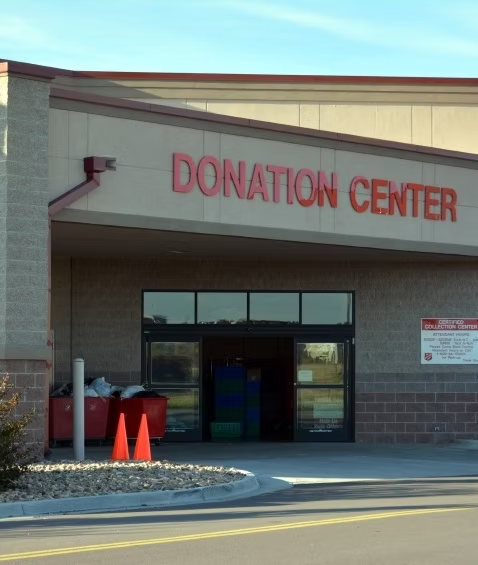Local Charities and Donation Centers Near Me: How to Find and Support Your Community
Donating to local charities and donation centers is one of the most effective ways to make a positive impact in your community. Whether you want to give clothes, food, money, or time, understanding where and how to donate locally helps ensure your contributions reach those who need them most.
This guide will walk you through the benefits of supporting local organizations, how to find reputable charities and donation centers near you, and tips for maximizing your impact.
Why Donate Locally?
Supporting local charities provides direct and immediate benefits to your community, such as:
-
Immediate Impact: Local organizations often have deep knowledge of community needs and can deliver aid faster.
-
Transparency: Smaller, local charities are easier to research and often more transparent about how donations are used.
-
Building Community: Donations help strengthen social ties and create networks of support among neighbors.
-
Encouraging Local Economy: Charitable programs frequently employ local workers and purchase goods locally.
Types of Local Charities and Donation Centers
| Charity Type | What They Accept | Common Needs |
|---|---|---|
| Food Banks | Non-perishable food, fresh produce | Canned goods, baby food, hygiene products |
| Clothing Donation Centers | Gently used clothing, shoes | Seasonal clothing, children’s clothes |
| Homeless Shelters | Clothing, hygiene kits, blankets | Sleeping bags, toiletries |
| Animal Shelters | Pet food, toys, monetary donations | Food, blankets, cleaning supplies |
| Community Foundations | Monetary donations, volunteering | Funds for various local projects |
How to Find Local Charities and Donation Centers Near Me
1. Use Online Search Tools
Search engines with keywords like “local charities near me” or “donation centers near me” provide quick results. You can also use dedicated platforms:
-
Charity Navigator – for rating charity legitimacy
-
GreatNonprofits – for reviews by donors and beneficiaries
-
VolunteerMatch – for volunteering opportunities
2. Check Social Media and Community Boards
Local Facebook groups, Nextdoor, and community bulletin boards often share information about nearby donation drives and centers.
3. Visit Local Religious and Community Centers
Churches, mosques, temples, and community halls frequently organize donation programs and partner with local charities.
4. Contact Local Government or Social Services
City or county websites often list registered charities and programs accepting donations.
Tips for Donating Responsibly
-
Verify Legitimacy: Use resources like vounesy.com/charity-verification to check if the charity is legitimate and transparent.
-
Ask What Is Needed: Contact donation centers before donating to ensure your items are useful and meet current needs.
-
Donate Clean and Usable Items: Especially for clothing and furniture, donate only items in good condition.
-
Consider Monetary Donations: Money allows charities to buy exactly what they need and cover administrative costs.
Benefits of Donating Locally
By donating to local charities, you:
-
Support neighbors in need.
-
Reduce environmental impact by donating reusable items.
-
Engage directly with organizations, creating meaningful relationships.
-
See tangible results in your community.
Examples of Popular Local Charities and Donation Centers (U.S. Focus)
| Charity Name | Focus Area | Website |
|---|---|---|
| Salvation Army | Various Aid | salvationarmyusa.org |
| Goodwill Industries | Employment, Donation | goodwill.org |
| Feeding America | Food Security | feedingamerica.org |
| Habitat for Humanity | Housing | habitat.org |
| Local Community Foundations | Various | Varies by location |
How to Find Donation Centers Near Me for Specific Items
| Item Type | How to Find Donation Centers |
|---|---|
| Clothing | Search “clothing donation near me” or Goodwill stores |
| Furniture | Contact Habitat for Humanity or Salvation Army |
| Electronics | Check for e-waste programs or Best Buy recycling |
| Books | Libraries or local schools may accept donations |
| Food | Local food banks or Feeding America affiliates |
Impact of Donating to Local Charities
Research shows that local donations often yield higher community satisfaction and better resource utilization. Local charities understand the unique needs of their neighborhoods and tailor programs accordingly.
According to a report by Charity Navigator, 80% of small local charities reinvest most of their funds directly into community services, enhancing efficiency.
How to Volunteer with Local Charities
Besides donating items or money, volunteering time is invaluable. Many local charities welcome volunteers for sorting donations, distributing food, mentoring, or fundraising. Websites like VolunteerMatch provide extensive listings.
Challenges in Local Donations
-
Overwhelmed Centers: Sometimes donation centers receive more items than they can handle, so check before donating.
-
Storage and Transportation: Large or bulky donations require logistics planning.
-
Safety Protocols: Due to health concerns (like COVID-19), some centers may have restrictions or specific requirements.
Conclusion
Donating to local charities and donation centers is a meaningful way to make a difference. With careful planning, research, and responsible giving, your donations can provide essential support to those in need while strengthening community ties.
For more information on responsible giving and to explore related topics such as “Donation Requests” and “Charity Donation Quotes,” visit vounesy.com/donation-resources.
